

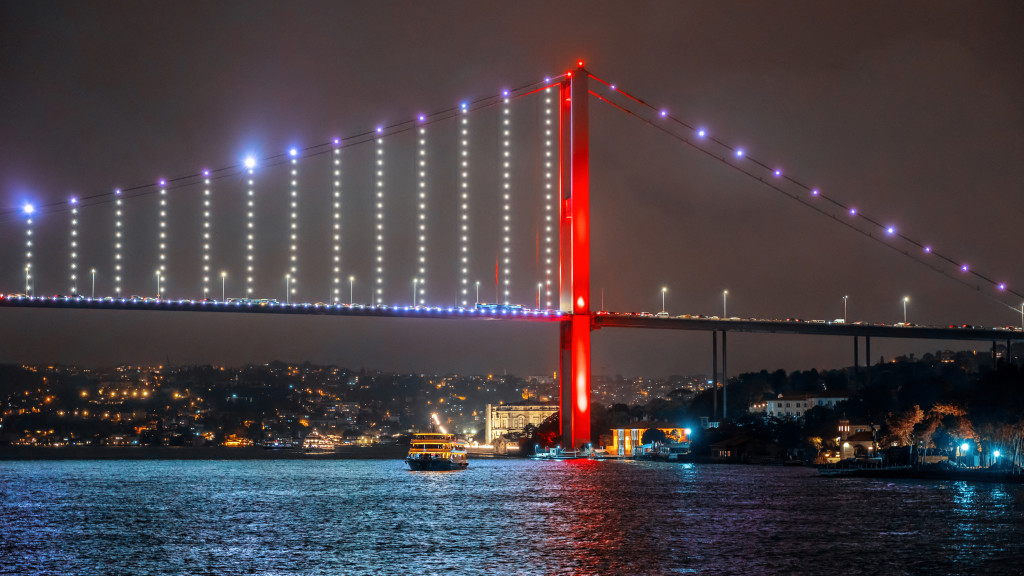

The Republic of Türkiye is seeking
re-election to the Council of the International Maritime Organization (IMO)
under Category "C" at the election to be held during the 34th Regular
Session of the IMO Assembly from 24 November-03 December 2025.
Türkiye: a Maritime Nation
Surrounded by the Black Sea, the Aegean Sea and the Mediterranean Sea, Türkiye has a strategic location at the crossroads of Europe, Asia and the Middle East. Together with the Turkish Straits, one of the most strategically located choke points, Türkiye is a key transit hub for international trade routes.
With a deep-rooted maritime tradition, Türkiye is involved in almost every facet of the maritime industry, from shipbuilding, ship repair, ship recycling and related sub-industries to ship and port operations, training of seafarers for the global industry, ship classification, marine insurance and maritime logistics. To ensure a sustainable maritime economy, Türkiye continuously invests in green transition and digitalization of her maritime industry.
Türkiye’s 193 port facilities serve as regional and global transshipment hubs, supporting nearly 90% of her foreign trade by sea. Turkish-owned merchant fleet is ranked 11th in the world with 52.7 million DWT. The Turkish flag has been on the White Lists of major PSC regimes such as Paris and Tokyo MoUs. As one of the leading seafaring nations, more than 140,000 highly qualified Turkish seafarers serve the global shipping sector.
Türkiye & IMO
As a founding member of IMO, Türkiye’s commitment to the Organization is long-standing. Türkiye actively participates in the work of IMO by engaging in its committees and working groups, contributing expertise to key issues with a view to enhancing safety and security of shipping and prevention pf marine and atmospheric pollution by ships.
Being party to the most of the IMO Conventions and Protocols, Türkiye effectively implements and enforces the provisions of the international maritime legislation.
As an active and cooperative member of the Council since 1999, Türkiye advocates common interests of all Member States. Within the Council, Türkiye supports the initiatives to strengthen transparency, enhance multilingualism, empower women, and improve the GISIS system to achieve IMO’s goals and objectives.
Maritime Safety and Security:
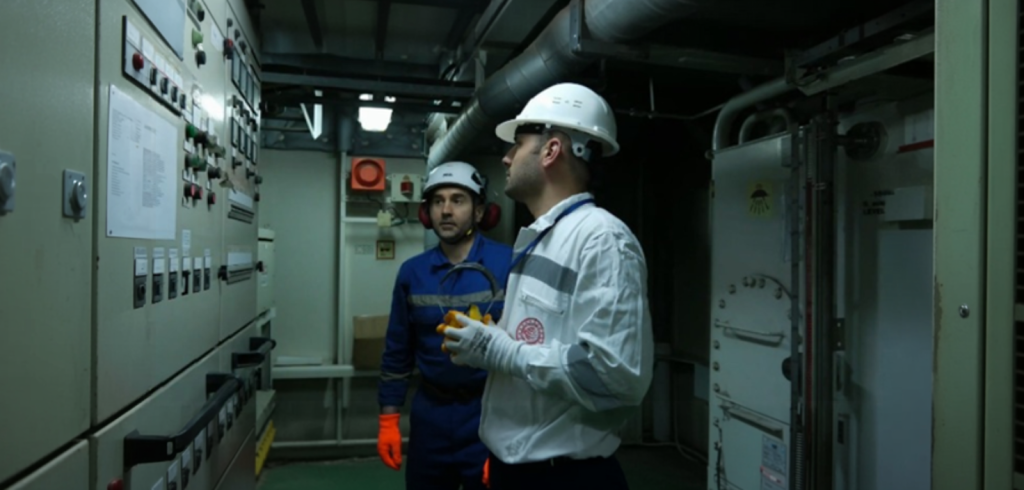

Türkiye plays a key role in maritime safety and
security. The Turkish Straits, one of the world’s busiest sea routes, are
managed by advanced vessel traffic systems to ensure safe navigation. Türkiye
effectively enforces the ISPS Code and supports maritime security through its
naval and coast guard operations. The country also coordinates regional search
and rescue efforts via its Main Search and Rescue Coordination Center in
Ankara, covering neighboring countries. Additionally, marine accident
investigations are conducted systematically to improve safety and prevent
future incidents.
Green Transition:
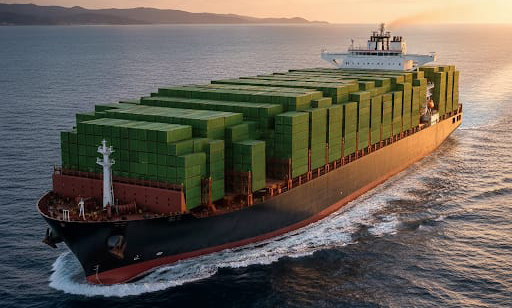

As a country with net-zero emission target for 2053, Türkiye supports IMO’s Strategy for the Reduction of GHG Emissions from Ships through innovation and investment in alternative fuels and green ports as well as incentives for green transition of the Turkish merchant fleet. Türkiye has played an active role in the finalization and adoption of the IMO GHG Strategy and continues to make significant contributions to the development of mid-term and long-term measures. Furthermore, Türkiye played an important role in designation of the Mediterranean Sea as an Emission Control Area for Sulphur Oxides by MEPC 79, in order to ensure reduction of emissions from ships.
Protection of marine environment:
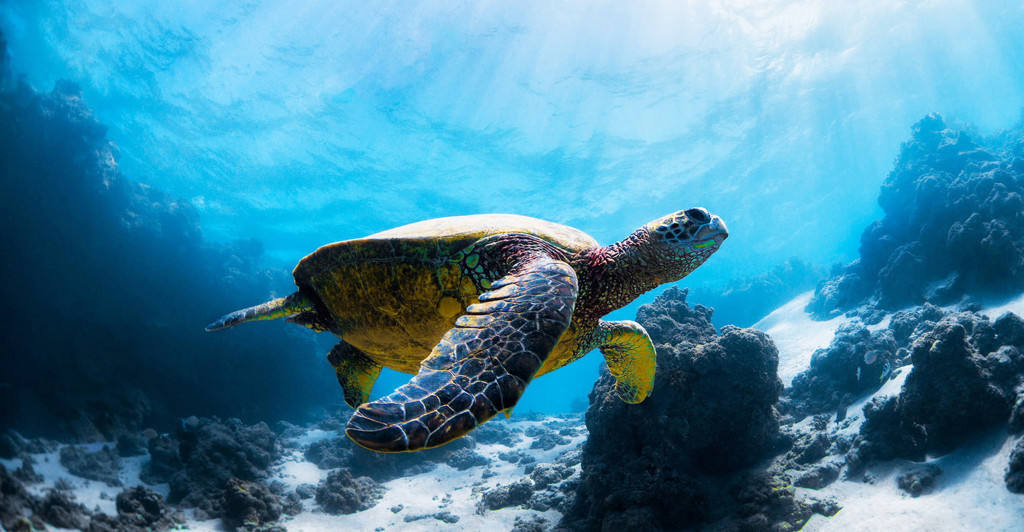

Türkiye actively protects the marine environment by implementing key international conventions and operating the National Maritime Safety Center for pollution response and training. It monitors pollution using advanced technology, enforces strict port inspections, and leads regional efforts on ballast water management. Türkiye also combats marine litter from land and sea sources. Türkiye is party to all conventions of IMO on the protection of the marine environment and implements them effectively.
Digitalization and Cybersecurity:


Türkiye promotes digitalization in maritime through its National Maritime Single Window System and actively supports IMO’s work on autonomous ships (MASS). It also prioritizes maritime cybersecurity, contributing to works to enhance digital resilience in the sector.
Training, Wellbeing and Safety of Seafarers:


Türkiye is one of the leading seafaring nations, whose competence is recognized by 38 countries under the STCW I/10 Protocol and placed on the White List of the STCW Convention. With over 100 accredited institutions, the country provides comprehensive training for seafarers, supported by modern digital systems to ensure transparency. In addition to enhancing safety through quality education, Türkiye remains committed to ensuring a supportive and safe environment for all seafarers to address their needs and concerns effectively. Türkiye has also taken concrete legal and institutional measures to combat harassment and violence on board, ensuring the overall well-being and protection of seafarers.
Women empowerment:
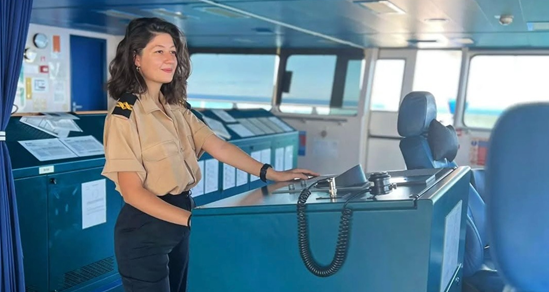

Türkiye promotes gender equality and an inclusive work environment in the maritime industry by supporting international efforts such as the IMO Gender Equality Award and participating in initiatives like the IMO Gender Network (IMOGEN). It also provides support to female students at institutions like the International Maritime Law Institute (IMLI) and the World Maritime University (WMU). Additionally, a protocol was signed with national stakeholders to ensure equal opportunities for women and men, which includes measures such as affirmative support for female cadets during their mandatory onboard training.
Cooperation:
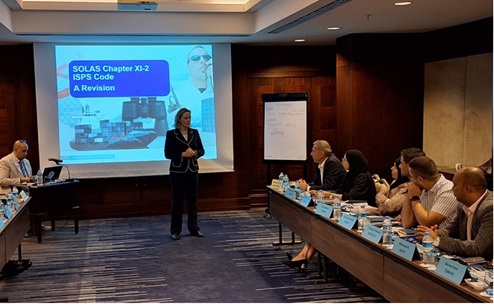

Having keen interest in international cooperation to ensure safe and sustainable maritime operations and to advance IMO’s goals without leaving any Member State behind, Türkiye shares her expertise and experience with the Member States through technical assistance, trainings and bilateral cooperation.